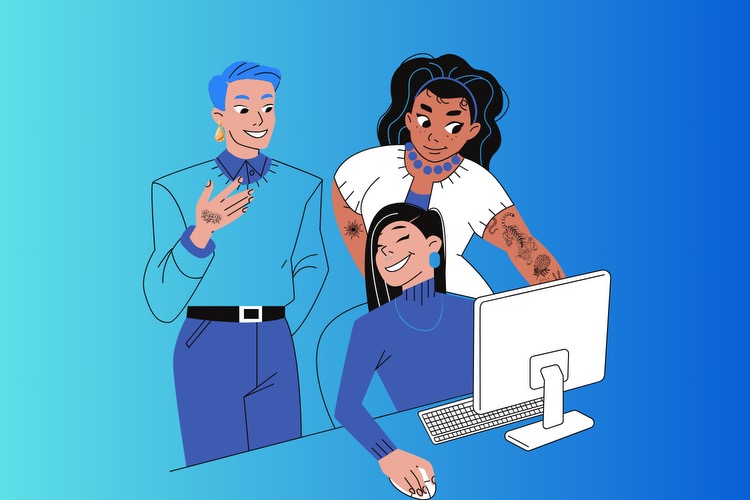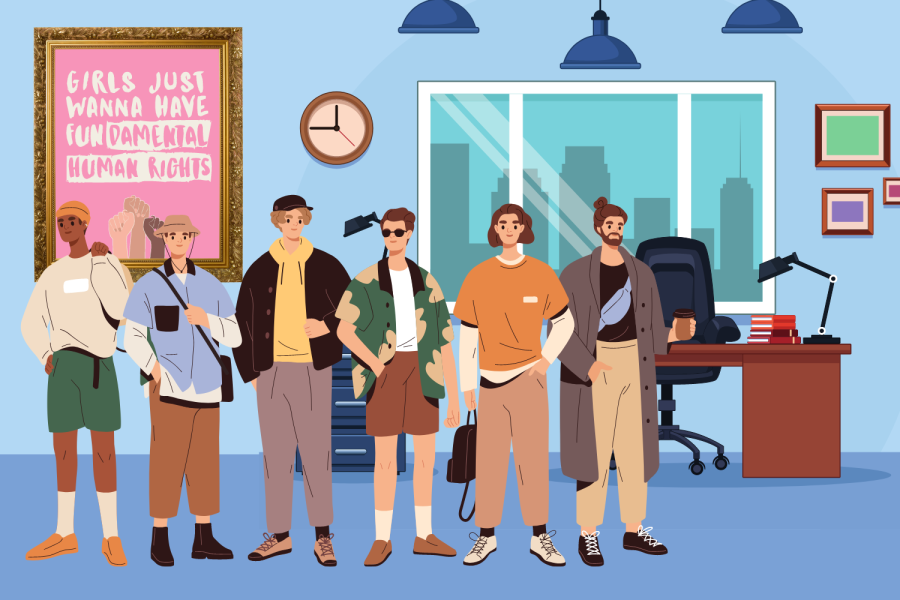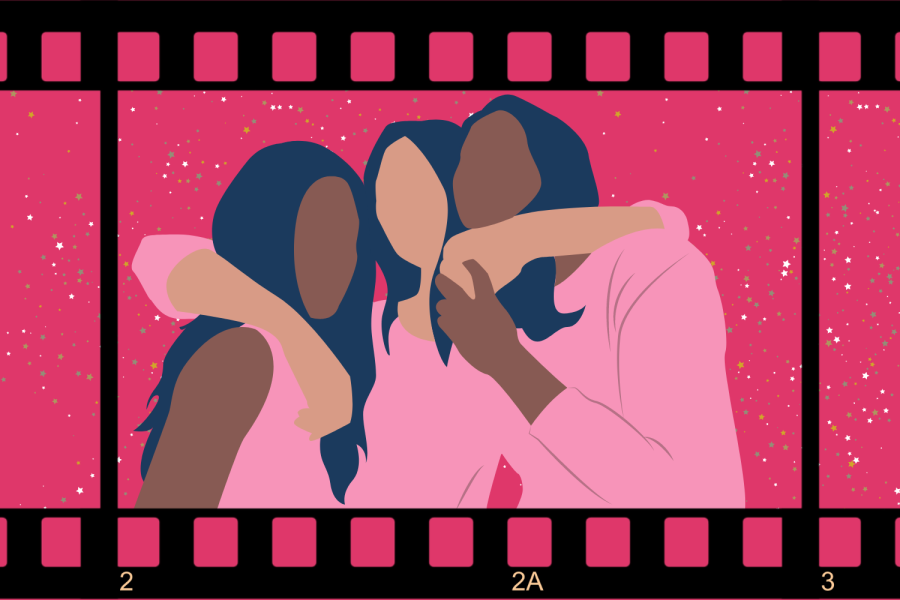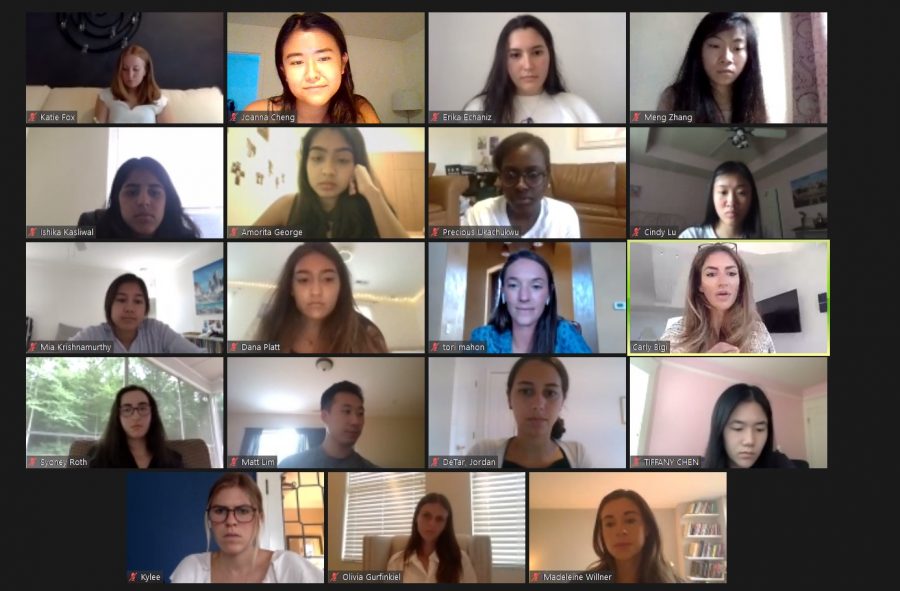Face, neck, hands. This description of unacceptable tattoo locations in the professional world, or “job-stoppers,” has been ingrained into the minds of rising young adults since childhood. Whether due to the inherent stigma surrounding tattoos that associates them with criminality or the widely-held cultural beliefs that they are not given to upstanding citizens, tattoos often represent the dichotomy between the professional and the unprofessional.
Tattoos, however, are not the only job-stoppers. While a very visible tattoo can decrease your chances of getting a job in many conventional professional careers, so can piercings and unnatural hair colors. It is common for jobs to prohibit facial piercings or “excessive” ear piercings. More relaxed jobs may allow one nostril piercing or a septum ring, and possibly won’t even restrict the number of allowed ear piercings; but still, they draw the line by disallowing stretched ears or facial piercings aside from the nose.
In the search for a professional image, jobs discourage fun hair colors or unconventional hairstyles, pushing their employees into the box of conventionalism and stripping them of their self-expression. Even worse, this selectivity often extends beyond the restriction of intentional aesthetic choices and into what can only be described as discrimination.
While many companies are slowly adapting to the bodily-modified world — allowing for visible tattoos, some piercings and colored hair — many companies still lag behind, especially in the “professional” sector. Despite spending eight or more years on degrees alone, doctors are often required to cover up tattoos with long sleeves. Most medical professions, in general, follow suit. Lawyers, businessmen and management are simply not imagined to be tattooed, pierced or have colorful hair; therefore, they are informally barred from entering these professions if they do not cover themselves up or remove their body modifications when applicable.
It isn’t revolutionary to state that the possession of body modifications does not limit your ability to perform a job; in fact, such things can sometimes make people more approachable and humanized. In a medical context, for instance, someone who is afraid in a sterile, unfamiliar environment may strike up a conversation with a nurse about their tattoos and feel more at ease. Still, despite the intuitive nature of knowing that body modifications do not equal unqualification for certain jobs, many people still hold the belief that too many piercings or colorful hair define unprofessionalism.
In rejecting those who choose to express themselves in unique ways, you reject some of the most honest, genuine and determined candidates across the board. Workers with a strong sense of identity have, in my experience working with them, done a wonderful job of knowing their role and importance within a workplace. By rejecting people based on their appearance, you are only perpetuating the cookie-cutter aestheticism that is holding us back professionally. The more eccentricity is allowed in the workplace, the more normalized authenticity becomes for workers and the general public alike. There is no shortage of intolerance in the world today, and any step toward normalizing the acceptance of others as they are is a step in the right direction.
In rejecting those who choose to express themselves in unique ways, you reject some of the most honest, genuine and determined candidates across the board.
These stifling professional standards extend far beyond the basis of intentional body modification. Often, the vision of a “professional” is also exclusionary based on racial, religious or other unchangeable features. The story often goes that the very businesses that preach professionalism on the basis of not looking “offensive” also limit their employees’ ability to wear natural hair or religious dress. This rhetoric can be poisonous, extending past adult experiences into schools and limiting children’s self-expression.
Junior Helena Spigner expressed that she, along with many of her colleagues, has felt discriminated against on the basis of both her changeable and unchangeable characteristics.
“It is often difficult for myself and my peers to see ourselves as professionals. We are told that it is inappropriate for us to be ourselves [and] that our tattoos, hairstyles (cultural or not) and piercings are not appropriate for children to see,” Spigner said. “Children see tattoos, piercings, locs, braids, etc. every day, and our self-expressions should humanize rather than demonize us. Prior to having locs, I have been asked to style my hair in ‘neat’ ways, meaning that my natural curls should be covered or put into a slick ponytail that was bad for my scalp and self-esteem.”
“Professionalism” has turned into a masquerade of meaningless, arbitrary rules that strip away all personality from the workforce.
Furthermore, Spigner emphasized that she has felt ostracized on the basis of her appearance and dialect as a Black American.
“We are asked to adhere to any and all European standards of beauty and professionalism. This often looks like asking people to change their hair, their cultural/religious clothing, and any other non-white practices,” Spigner said. “We are expected to speak Standard English which has been ‘standardized’ by white Americans and discredits the valuable contributions to language from speakers of African American Vernacular English (AAVE) and other dialects.”
Spigner’s points underline a very important point of contention for our current professional standards: they were built for those who developed the system in the first place. Such discriminatory systems exclude such a large portion of the population that I struggle to understand who they benefit. Is it offensive to exist in the body you were born into with the hair you grew naturally? Is it offensive to practice a religion publicly, when expressing some visible sign of devotion is obliged in most major religious practices? Most contentiously, is it offensive to express yourself publicly, tarnishing the businesses slowly engulfing your entire identity, just to make a living? When you take away everyone who falls into these exclusive categories of “unprofessional,” almost nobody is left at all. “Professionalism” has turned into a masquerade of meaningless, arbitrary rules that strip away all personality from the workforce.
I keep a dish on my desk for my jewelry when I take it out for job interviews, and I weigh my options for self-expression without stepping on the toes of my future boss. The frustration from my experiences has highlighted one key complaint against the conformity of professionalism: there should never have to be a choice between someone’s self-expression and career — even less so between culture and career — because a career should never have to take importance over identity.











